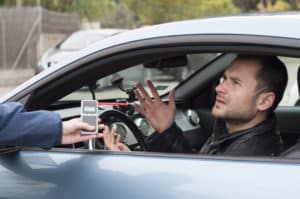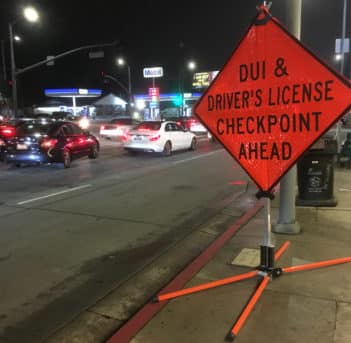
Serving People Throughout Colorado
Call Us For Free Consultation:
If you drive a car in Denver or other parts of Colorado, you’ve probably seen sobriety checkpoints, also known as DUI (driving under the influence) checkpoints. Unlike many other states, Colorado does not make DUI roadblocks illegal but drivers in Colorado must understand their legal rights during these checkpoints to protect themselves from unwarranted arrests. It’s important to speak with a Denver DUI attorney to learn more about your responsibilities and rights at a sobriety checkpoint.
Under the U.S. Constitution, sobriety checkpoints are generally legal; however, many states have their own laws and statutes that affect the legality of DUI roadblocks. According to the Foundation for Advancing Alcohol Responsibility, eight states prohibit sobriety checkpoints. The following states that make DUI roadblocks illegal under the state constitution, law, or statute are:
Meanwhile, the rest of the U.S., including California, Florida, New York, and the District of Columbia make DUI roadblocks legal as part of their efforts to combat drunk driving. While Colorado is also among the states where DUI checkpoints are legal, a roadblock can be deemed unlawful if the law enforcement violates guidelines for sobriety checkpoints.
The Colorado Department of Transportation (CDOT) warns motorists of upcoming sobriety checkpoints by posting advance notice of DUI roadblocks. Often, law enforcement in Colorado conducts sobriety checkpoints during specific holidays such as Christmas, New Year’s Eve, Fourth of July, St. Patrick’s Day, and other holidays when alcohol consumption is high. Nevertheless, DUI checkpoints are illegal if they violate CDOT’s guidelines for sobriety roadblocks:
While the law enforcement’s failure to comply with the guidelines does not automatically make the DUI checkpoint illegal, it provides a solid ground for challenging the traffic stop and getting the DWI, DWAI, or other charges dropped or dismissed. Contact the skilled Denver DUI attorney at the Law Offices of Steven J. Pisani, LLC to investigate your particular case and help you prove that the sobriety checkpoint was illegal due to police violations of CDOT guidelines.

When a police officer pulls your car over at a DUI checkpoint, you will be asked to roll down the window. The officer will request to see your driver’s license and registration, and you are legally required to comply with the request.
The police officer may suspect that a driver is under the influence of alcohol or drugs if:
If the police officer suspects a DUI, they will ask the driver to step out of the vehicle and may request the motorist to take a field sobriety test and/or a breath test, also known as the preliminary alcohol screening test. Note: The results of these tests can be used as evidence of impairment in your DUI case. Know that the field sobriety test and the breath test are optional, which means you have a right to refuse to take these tests without facing any legal repercussions.
However, if the officer has a reasonable belief that the driver is impaired by alcohol or drugs, they can arrest the motorist for DUI of alcohol or drugs, DUI “per se” (when the blood alcohol concentration exceeds .08%), DWAI by alcohol or drugs (when the BAC level is between .05% and .08%), or underage drinking and driving (UDD).
Upon your DUI arrest, the officer will request you to take a blood test or evidential breath alcohol test. You have the option to choose between these two chemical tests. Under the C.R.S. § 42-2-126, a driver can face the following penalties for refusing to submit to a chemical test:
In addition to the above consequences, your refusal to take the chemical tests will be used against you as evidence of guilt in court.
If you were stopped at a DUI checkpoint in Colorado and were arrested for driving under the influence, don’t hesitate to contact our DUI defense lawyer at the Law Offices of Steven J. Pisani, LLC to help you fight the charges and protect your driving privileges and rights. Give us a call at (303) 635-6768 to receive a free consultation.
